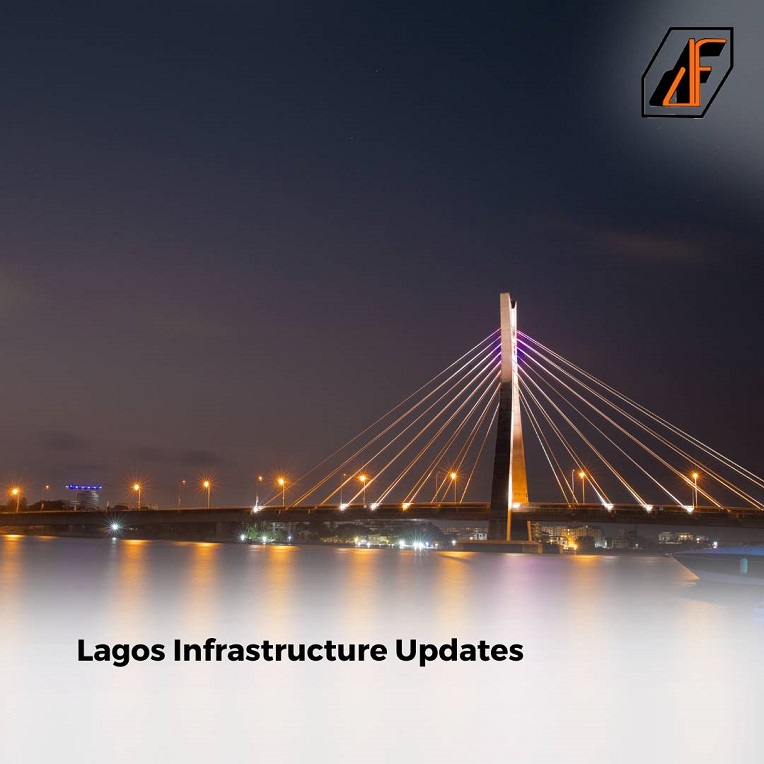Infrastructure provision is a focal point in fulfilling the ‘Greater Lagos’ mandate and promoting a greener future as the Lagos State government continues to splurge on an infrastructure overhaul and upgrade.
Under the Traffic Management and Transportation pillar of the Lagos State strategic development agenda established 4 years ago, infrastructure provision is a focal point in fulfilling the ‘Greater Lagos’ mandate and promoting a greener future as the State government continues to splurge on an infrastructure overhaul and upgrade. Though there is still a long way to go, there have been a few achievements, from the rehabilitation and upgrade of over 1,000 junction and community roads to the construction of more than 100 link roads, flyovers, and bridges, the quest to bridge the Lagos road infrastructure gap and traffic choke-points along commuter routes is in gear. In addition, 15 more ferries have become operational to complement the previously existing 6 ferries in the city as of 2019, the latest being the Ishefun Jetty – linking Lagos to Ogun State. The first phase of the 27-km Lagos Blue Rail Line adds to the list of newly commissioned projects. The 13-km rail stretch covering 5 stations will run from Marina to Mile 2 in a matter of minutes instead of the regular long hours, and in the long term, further positively impacting property values around the rail area.
Following the aftermath of severe flooding in parts of Lagos in 2022, demand for housing is observed in areas where there have been infrastructure upgrades, thereby increasing residential stock, particularly in low-middle-income areas. Ibeju-Lekki, a nascent area, is experiencing heightened activities in terms of housing and infrastructure. The recent expansion and upgrade of the 2-lane 18.7km Eleko-Epe expressway, Ibeju-Lekki, into a 6-lane carriageway will further drive up land prices in the area as more developers embrace the continuity of their projects. Messrs CCECC-CRCCIG Consortium has won the bid to construct the Lagos 4th Mainland Bridge. Upon completion, the $2.5Bn project is expected to promote accessibility along the Lekki-Epe corridor serving as an allure for deepened commercialisation and higher property values. The project is slated for completion by 2027. Similarly, the over-a-decade-long Lagos-Badagry expressway, which now nears completion covering Nigeria’s section of the Trans-West Africa Coastal Highway linking Dakar, Senegal, will reduce rush hour periods for commuters and workers plying the highway.
Lagos ports remain a cornerstone of the Nigerian economy as it accommodates over 70% of Nigeria’s imports, significantly contributing to the nation’s GDP. Taking a stab at decongesting the Apapa port, the newly commissioned $1.5Bn Lekki Deep Seaport will now rise to the occasion, serving as a central hub for passenger and cargo traffic. However, the looming stress on the Lekki-Epe corridor due to increased migration and movement of heavy-duty cargo-carrying trucks en route to the Dangote refinery and the entire Lekki Free Trade Zone remains a major concern for those living and working in the area.
The recent makeover of one of Lagos’s cultural hubs, the JK Randle Center, became imperative for positioning Lagos as an enterprise city. It sits on 11,000 sqm of land, offering a 1,000 sqm exhibition gallery, an outdoor theater, and learning spaces, among other features. Lagos is known as the ‘city that never sleeps,’ and the rebirth of the JK Randle Centre is considered a step toward reawakening the city’s nightlife, music, and general entertainment, ultimately boosting the state’s revenues.

